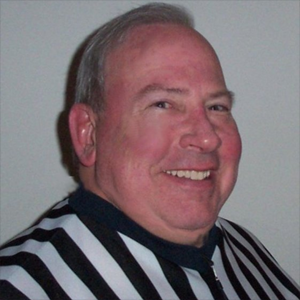I spent the five happiest years of my life in a morgue. As a forensic scientist in the Cleveland coroner’s office I analyzed gunshot residue on hands and clothing, hairs, fibers, paint, glass, DNA, blood and many other forms of trace evidence, as well as crime scenes. Now I'm a certified latent print examiner and CSI for a police department in Florida. I also write a series of forensic suspense novels, turning the day job into fiction. My books have been translated into six languages.
Yes, they are different substances.
I'm sorry but that can, and has, fill several textbooks. There's just no way for me to summarize it in a paragraph.
I wasn't aware that there were theories other than: Do the right thing. Don't do the wrong thing.
Figuring out which is which isn't really that hard. Doing it might be, but it's usually not hard to figure out.
Hope that helps!
As far as I know since they would all be the same type of cells, they could not be separated.
Basketball Referee
 Ever get into a physical altercation with a crazed parent?
Ever get into a physical altercation with a crazed parent?
Professor
 Are professors really subject to the "Publish or Perish" policy?
Are professors really subject to the "Publish or Perish" policy?
Air Traffic Controller
 Have you ever ordered a pilot to abort mid-takeoff?
Have you ever ordered a pilot to abort mid-takeoff?
School project?Email me at Lisa-black@live.com and I'll send you answers I've accumulated.
Wow I am sorry I somehow didn't answer this question!! In my experience we do a presumptive test for both and then send to DNA testing because they will confirm the presence of DNA in the quantitative step. We do have the OBTI test for human blood but there's no reason to do it u less we're in a huge hurry to confirm human blood.
Yes, all the time. That's part of my job. But that will depend on what your job is, some people work only in the lab, and others work only at crime scenes.
-OR-
 Login with Facebook
Login with Facebook (max 20 characters - letters, numbers, and underscores only. Note that your username is private, and you have the option to choose an alias when asking questions or hosting a Q&A.)
(A valid e-mail address is required. Your e-mail will not be shared with anyone.)
(min 5 characters)
By checking this box, you acknowledge that you have read and agree to Jobstr.com’s Terms and Privacy Policy.
-OR-
 Register with Facebook
Register with Facebook(Don't worry: you'll be able to choose an alias when asking questions or hosting a Q&A.)